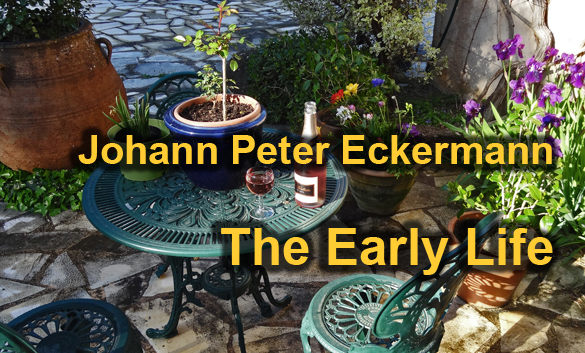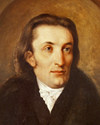


 he story of the selection of this contribution began like the outset of Jerome K. Jerome's novel Three Men in a Boat (to say nothing of the dog):
he story of the selection of this contribution began like the outset of Jerome K. Jerome's novel Three Men in a Boat (to say nothing of the dog):
"There were four of us — George, and William Samuel Harris, and myself, and Montmorency [the dog]. We were sitting … and talking about how bad we were — bad from a medical point of view I mean, of course.
"We were all feeling seedy, and we were getting quite nervous about it. Harris said he felt such extraordinary fits of giddiness come over him at times, that he hardly knew what he was doing; and then George said that he had fits of giddiness too, and hardly knew what he was doing. With me, it was my liver that was out of order. I knew it was my liver that was out of order, because I had just been reading a patent liver-pill circular, in which were detailed the various symptoms by which a man could tell when his liver was out of order. I had them all."
On a late sunny autumn noon after a rainy night I was sitting in the Small Café, having a little pink champagne, reflecting on the course of time. A short while later two friends joined this session, so the three of us, nicely distanced according to the rules of the grand pandemic, were drinking pink champagne and being miserable (also according to the rules of the grand pandemic).
Then one friend mentioned that he had recently moved his library and found some books he had never read, among them Eckermann's book on Goethe. He said:
"The description of his early life would fit nicely into the series of contributions to A Small Café. It is kind of uplifting to see how people who seem to have no chance in life can make it — if they believe in themselves and have the drive to succeed. We need that in our times."

Johann Peter Eckermann (21 September 1792 - 3 December 1854), the child of a peddler, came from a very modest background. He was a German poet and author, and is best known for his work Conversations with Goethe, the fruit of his association with Johann Wolfgang von Goethe during the last years of Goethe's life.
Eckermann was born in Winsen on the Luhe river southeast of Hamburg. At the age of 16 he became a clerk in Winsen, later in various offices of the prefecture of Lüneburg. After serving as a volunteer in the War of Liberation from the French occupation of Germany (1813–1814), he tried to train as a painter in Hanover, but failed for lack of money; he continued to make ends meet with clerical work. In 1821/22 he attended law lectures in Göttingen. After positive reactions to lyrical attempts, he wrote a collection of poetological theses (Beiträge zur Poesie), the manuscript of which he sent to Goethe. In June 1823 he traveled to Weimar; Goethe received him kindly and invited him to help him arrange his writings. Eckermann remained in Weimar and became Goethe's closest assistant in editing; he induced Goethe to complete Faust and the last part of Dichtung und Wahrheit.
In Weimar he supported himself as a private tutor. For several years he also instructed the son of the grand duke. In 1830 he travelled in Italy with Goethe's son. In 1838 he was given the title of grand-ducal councillor and appointed librarian to the grand-duchess.
Eckermann is chiefly remembered for his important contributions to the knowledge of Goethe contained in his Conversations with Goethe (1836–1848). To Eckermann Goethe entrusted the publication of his Nachgelassene Schriften (posthumous works) (1832–1833). He was also joint-editor with Friedrich Wilhelm Riemer (1774–1845) of the complete edition of Goethe's works in 40 volumes (1839–1840). He died in poverty in Weimar in 1854.
Note: the English version of Eckermann's curriculum vitae and of his conversations with Goethe have been shortened and edited by an English translator of Conversations with Goethe. Still, the main facts in the following text come close to the original German version.
|
Contents
Presentation Inhalt
Vorstellung |
| |
| |
|
Johann Peter Eckermann. Gespräche mit Goethe. Leipzig: F.A. Brockhaus. 1836.
|